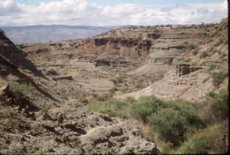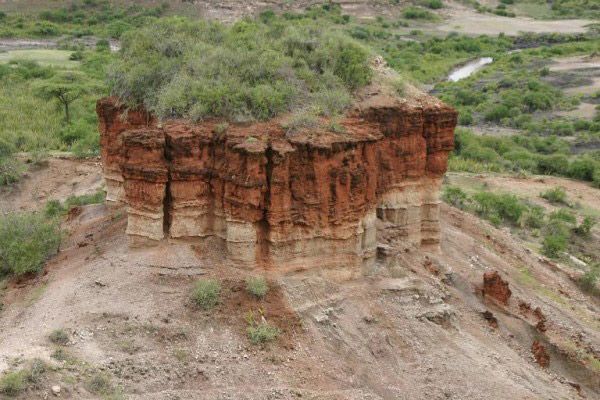New publications
Abrupt climate change has affected human evolution
Last reviewed: 01.07.2025

All iLive content is medically reviewed or fact checked to ensure as much factual accuracy as possible.
We have strict sourcing guidelines and only link to reputable media sites, academic research institutions and, whenever possible, medically peer reviewed studies. Note that the numbers in parentheses ([1], [2], etc.) are clickable links to these studies.
If you feel that any of our content is inaccurate, out-of-date, or otherwise questionable, please select it and press Ctrl + Enter.

Experts from the University of Pennsylvania have concluded that climate changes that occurred in East Africa about two million years ago could have influenced human evolution.

The need to adapt to rapidly changing climatic conditions provoked the acceleration of brain development in our ancestors.
The results of the study were published in the scientific journal Proceedings of the National Academy of Science.
For a long time, a group of paleoclimatologists, led by Catherine Freeman, conducted research in the territory of Olduvai Gorge – the “cradle of humanity”.
Scientists analyzed sediments that formed over a long period of time in the lakes of Olduvai Gorge. They studied changes in the chemical composition of algae leaves and plants that accumulated on the bottom of the lake, which dried up a long time ago. According to experts, plants can be called a kind of mirror that can reflect the history of climate change.
Unlike organic compounds, wax is very well preserved in sediments, and by analyzing the isotopic composition of wax, it is possible to find out which plants were prevalent in a particular area.
Experts found that the local ecosystem was constantly undergoing abrupt climate changes, followed by periodic changes in the prevailing vegetation in the area – Olduvai would sometimes turn into savannas, sometimes it would be covered in forests.
To figure out what was causing these changes, the researchers used statistical and mathematical models to compare changes in the environment with other processes that were happening at the time, such as landform changes and plate tectonics.
"The Earth's orbit around the sun changes over time," says Dr Freeman. "These changes have been linked to the local climate at Olduvai Gorge due to changes in the monsoon system in Africa."
As a result, scientists counted five climate changes that were abrupt in nature – on average, the change from forest to savanna and vice versa occurred over the course of one to two thousand years, which by geological standards is literally an instantaneous transition.
Researchers believe that it was precisely these climate changes that served as the impetus for the dispersal of our ancestors to different parts of Africa, and also became the reason for the acceleration of evolutionary processes.
"This study provides an opportunity to shed light on human evolution. People had to develop certain mechanisms that helped them cope with the transition from one type of food to another, as well as with other problems that followed. These mechanisms may include walking upright and a more complex structure of social society," comments one of the authors of the work, Professor Clayton Magill from the University of Pennsylvania in Philadelphia. "We were able to find out that an unfavorable climate and its constant changes coincided with the appearance of the ancestors of modern man from the genus Homo, who learned to create and use the first tools."

 [
[